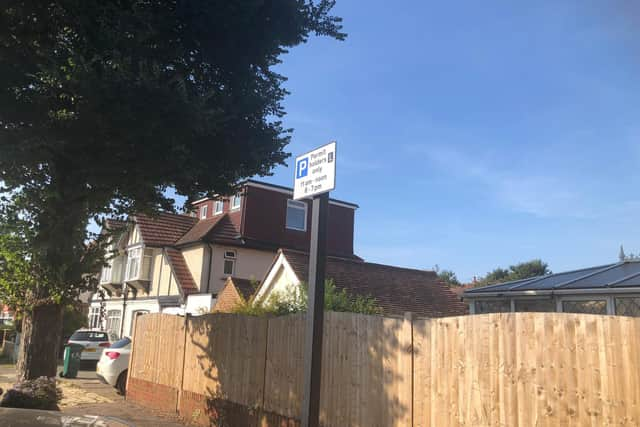Resident parking permit prices in Brighton and Hove could be increased if council committee approves proposals
and live on Freeview channel 276
Those with second cars face paying £240 for parking permits if councillors vote to put up the charge.
Advertisement
Hide AdAdvertisement
Hide AdA report to the council’s Environment, Transport and Sustainability Committee has proposed a £30 increase in the fee for second cars and £50 more for third cars in areas with resident parking schemes. Parking permits for third cars would go up to £360. Single resident parking permits are earmarked to increase by £10 to £175, with a 50 per cent discount for low-emission vehicles but a 75 per cent surcharge for high-emission vehicles.


In areas with ‘high demand’, third car permits would go up by 56 per cent, taking the cost from £395 to £460.
A five per cent increase is proposed for annual and three-month traders’ permits, taking the cost to £800 for a year – and £245 for three months.
Tariffs in council-owned car parks look set to go up by an average of 15 per cent.
Advertisement
Hide AdAdvertisement
Hide AdIn the report, the charges at Brighton’s most expensive car park, in The Lanes, are recommended to rise from £4 to £4.50 for an hour and from £17.50 to £20 for four hours.
If councillors do not agree with the recommendations when they meet on Tuesday (January 18), the proposed increases are scheduled to go before the council’s Policy and Resources Committee on Thursday, February 10.
The review of fees and charges form part of the annual budget process as the council prepares its tax and spending plans for the 2022-23 financial year which starts in March.
The report said any surplus generated from parking charges would be invested in concessionary bus fares, bus subsidies, the local transport plan and environmental improvements.
Advertisement
Hide AdAdvertisement
Hide AdIt said: “Improving air quality is a key objective for Brighton and Hove City Council. As part of a range of measures to improve air quality such as the Low Emission Zone, parking charges can also help to encourage less polluting travel options and reduce emissions. In addition, congestion across the city can affect the reliability of journey times and long-term parking can reduce accessibility and the turnover of spaces.
“Better accessibility through a high turnover of vehicles being parked helps to support local businesses. Parking charges can help to encourage alternative transport choices and higher turnover of spaces. Penalty charge notices (PCNs) are set by central government and cannot be changed independently.”
The council’s Environment, Transport and Sustainability Committee is due to meet at Hove Town Hall at 4pm next Tuesday. The meeting is scheduled to be webcast on the council’s website.